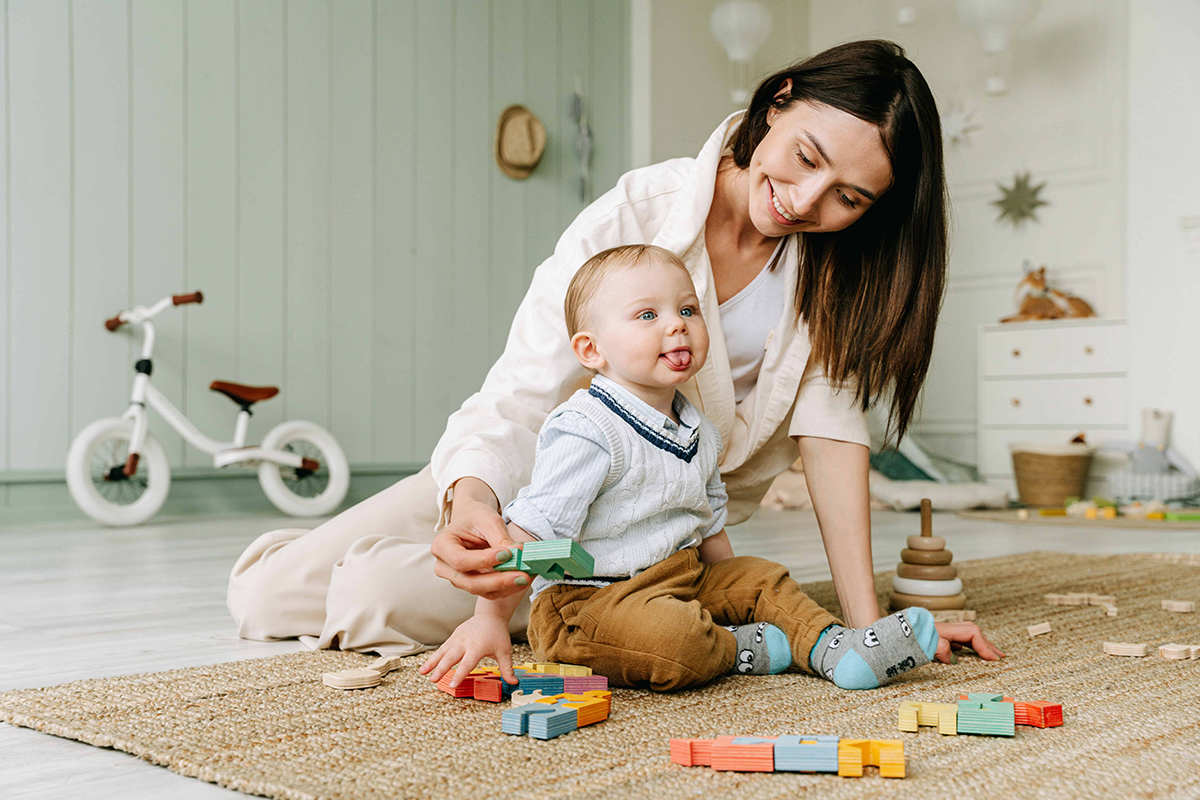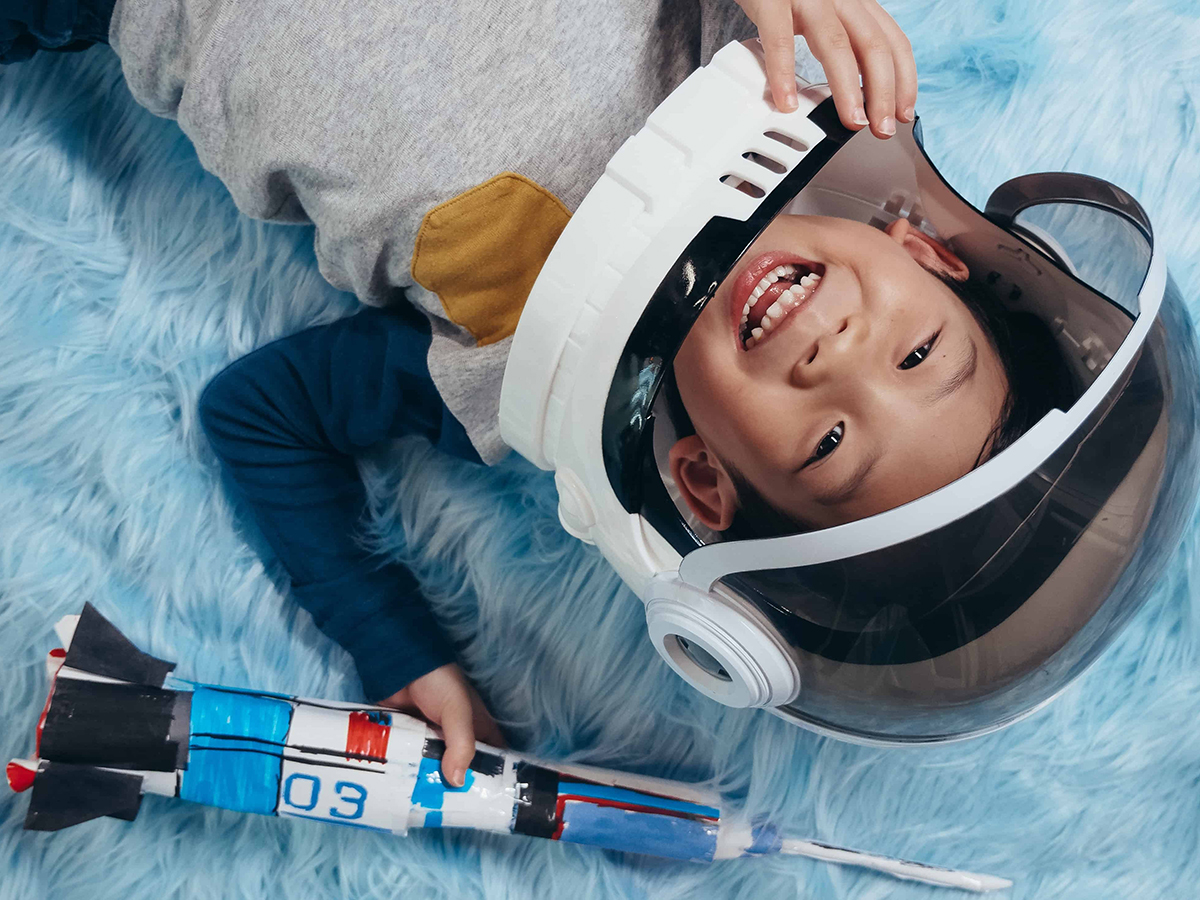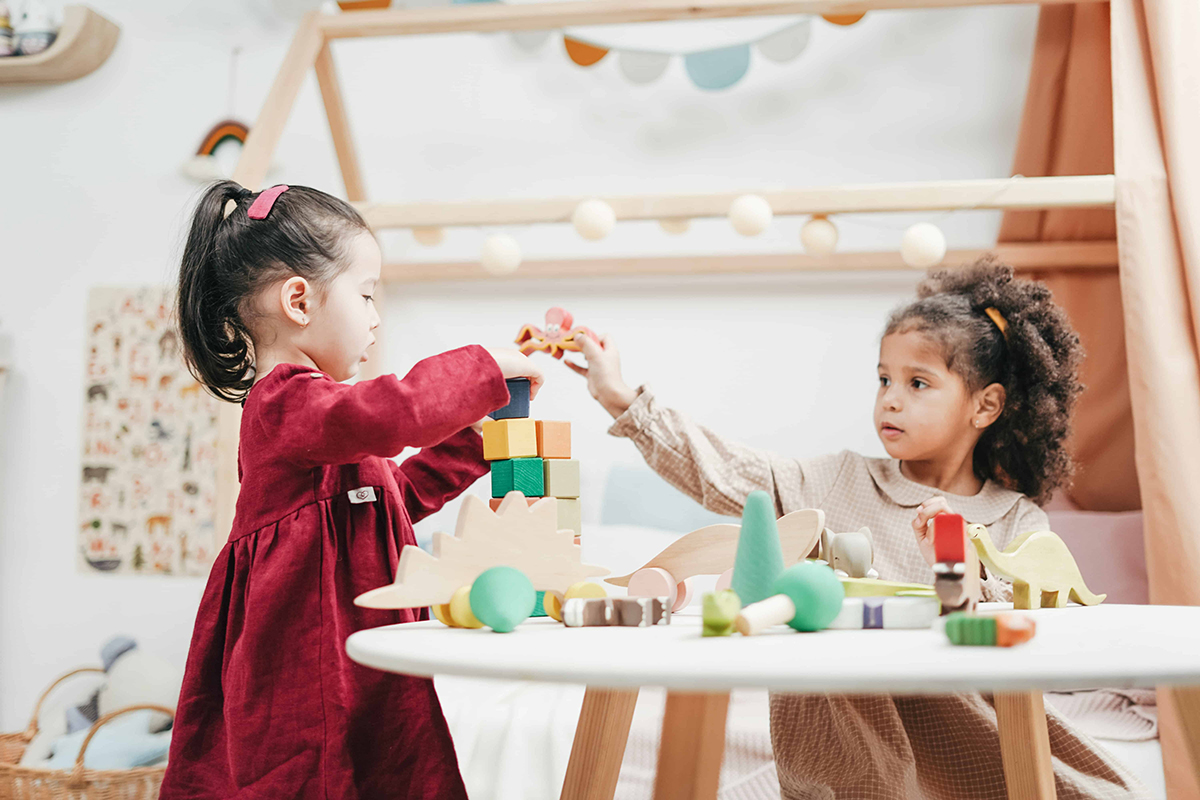Many people underestimate the importance of playtime but setting aside time for kids to play at home is far more important than you may realize. The truth is that the value of play cannot be overstated. It's just as important for your child's growth as eating greens, exercising, and getting enough sleep. This is because kids learn about the world, themselves, and one another through play.

The importance of playtime
The Power of Play: A Pediatric Role in Enhancing Development in Young Children, a clinical report published by the American Academy of Pediatrics (AAP), explains the importance of playtime and how it improves children's brain structure. In short, play promotes the learning process, allowing kids to focus on goals while ignoring distractions.
While play enhances children's mental, emotional, and physical health, the benefits of play extend to adults as well. When adults talk to their children about playtime, they demonstrate a genuine interest in their children's hobbies and interests. This also creates a stronger relationship between adult and child.

10 Reasons why play is NOT a waste of time:
1 - Allows kids to learn and explore
When kids play, they are learning about themselves and the world around them. They make discoveries and are eager to explore new things. For example, babies may learn to interact with objects by picking them up. Toddlers, on the other hand, may engage in pretend play to better understanding the things they see every day. When it comes to the importance of playtime, older kids benefit from physical activities such running and jumping. This is because it helps them become more aware of their surroundings and learn new skills as well.
2 - Play time teaches kids to cope with stress at home
Play enhances a child's mood and allows them to better cope with challenging emotions. Kids learn to recognize and express a wide range of emotions through play. As a result, they are better at handling disappointments and frustrations. Moving, divorce, or the loss of a loved one, can all be stressful situations for a child. Kids typically turn to play to self-soothe and gain emotional control in stressful or confusing situations. Play helps children develop confidence and empathy, which help them cope with change and uncertainty.
3 - It teaches creative problem solving skills
Unstructured play teaches kids to think creatively while they play at home. This helps them come up with new solutions on their own when faced with a challenge. Play is vital for healthy brain development and allows kids the freedom to create and explore.
4 - Play time strengthens kids language and math skills
It's important to keep in mind that improving your child's math and language skills is a big part of the importance of playtime. Shape, counting, and size-related play activities can help kids develop early numeracy and math skills. Kids can also build numeracy and math skills through activities such as singing number songs and sorting toys together
5 - Social Skills
Don't undervalue the importance of playtime- it helps kids develop social skills through group play. They learn how to work together, compromise, and overcome disagreements. When kids engage in group activities, they learn about their role in the group. Playing with others teaches kids to share, cooperate, take turns, teamwork, and show consideration for one another.
6 - Importance of assessing risk during playtime
Play allows kids to make their own decisions and find creative solutions to problems. Learning through trial and error helps kids make better decisions as they get older. During play, they subconsciously assess how much physical, emotional, and social risk they are willing to take.
7 - Physical Development
Physical development includes gross and fine motor skills, strength and muscle development. Outdoor play, for example, helps kids develop motor skills, coordination, strength, and endurance. These abilities are necessary for the development of active and healthy bodies.
8 - At home play teaches kids about planning and organizing
The importance of playtime is influenced by both planning and organization. These skills can be taught to kids through play. Realistic routines, such as putting away toys and placing them in appropriately labeled containers after play time, can help to reinforce these skills. Games like pick up sticks help kids see the cause and effect of their actions. This helps with planning because since the game requires them to figure out a way to move their sticks without disturbing the others. Sorting games can also help your child learn how to arrange and organize objects based on similarities.
9 - Playtime builds confidence in kids
Experimenting and trying new things helps kids gain confidence when it comes to the importance of playtime. Even if they fail, they will gain the confidence they need to overcome challenges in the future. So whether your child is learning to go down the slide or stack blocks, they are gaining confidence with each new accomplishment.
10 - Kids play time at home stimulates brain development
When kids have play time at home, they improve their cognitive, linguistic, and social development. This is done by overcoming obstacles and engaging in fun activities that challenge their brains. One study by the University of Arkansas shows that providing toys to newborns on a daily basis results in higher IQs by the time kids reach the age of three. In their work "Children's Thinking Styles, Play, and Academic Performance," Sharon Liden and Lisa Shin investigate some of the links between play and academic performance.

The Importance of Different Types of Playtime:
There are many ways in which kids benefit from different types of play when it comes to the importance of playtime in general.
1 - Playing with toys & objects
When babies play with objects such as toys, they use their sensory-motor abilities. Your infant, for example, may knock a toy on the floor to learn that it is solid. Toys can also help pre-school kids learn about sharing and taking turns during play time.
2 - Importance of physical playtime
Playing on the playground during recess helps kids improve motor skills and emotional intelligence while helping prevent childhood obesity. Swinging on the monkey bars, for example, may boost your child's confidence by allowing them to take risks in a safe environment. Playing games like tag and duck duck goose with their peers teaches kids how to be kind and compassionate.
3 - Kids outside play time
Play time outdoors is one of the most important types of play because it allows kids to use all of their senses to develop spatial awareness, balance, and attention span. According to studies, kids who have more time for recess do better in school as they become older.
4 - Pretend play time
Kids pretend play time encourages them to try different social roles and learn to collaborate. Dress-up and imaginative play promote kid's creativity while helping them develop communication and language skills.

Final Thoughts on the Importance of Playtime
Play time at home helps kids physical, emotional, social, and cognitive well-being while also encouraging physical activity. It's not a passing fad or a waste of time. Allowing your child to play is one of the greatest ways to help them develop the skills they need to become creative, healthy, and happy adults.
Now it's your turn. What are your ideas on the importance of playtime for kids? Share your thoughts with us in the comments below. Be sure to check out our blog for more kid-friendly activities and to get more excellent ideas for fun things you can do together with your children.

